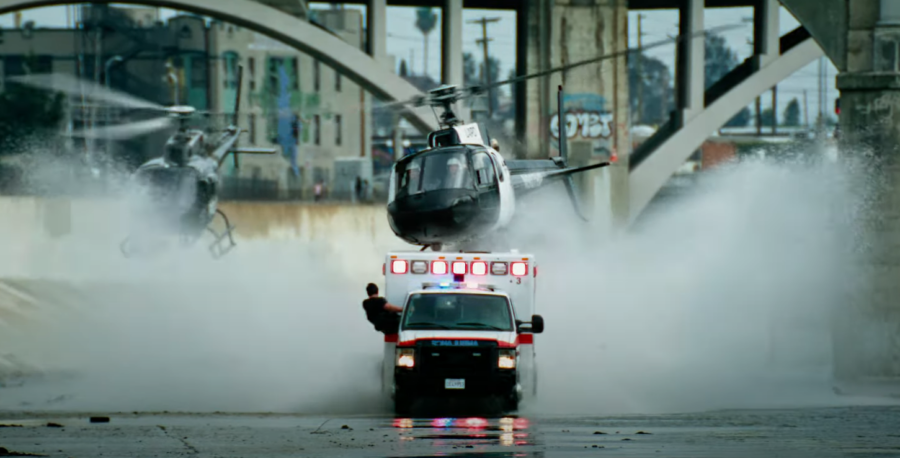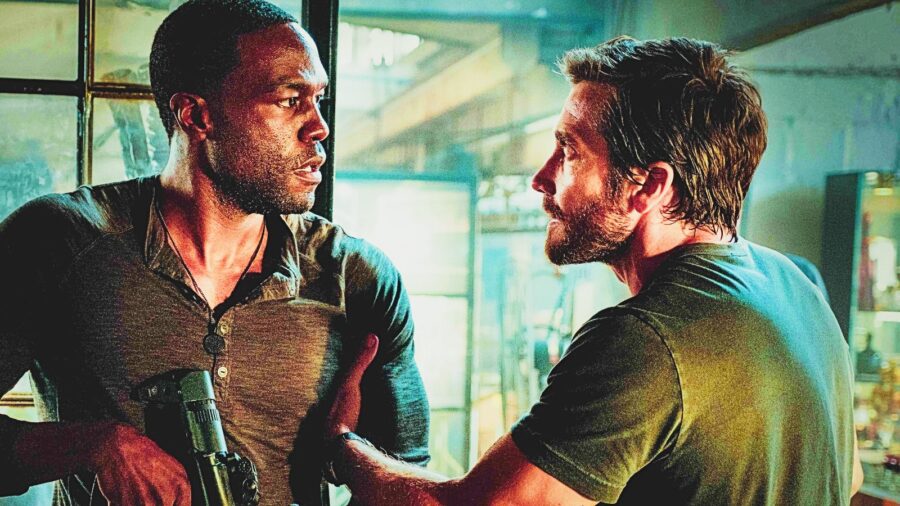Michael Bay Rescued By Ambulance
Michael Bay's career has been granted second life thanks to Ambulance.
This article is more than 2 years old

It’s been one year since Ambulance roared into theaters across America, and ever since, something amazing has been happening: audiences are again praising the talents of legendary director Michael Bay. After bursting onto the scene with the instant classics Bad Boys, The Rock, and Armageddon, his career detoured with the Transformer films and away from what made his earliest action movies great. The concept of “Bayhem” became such a joke that his name kept audiences away from the movie theater, and now, he’s back where he belongs and is again an in-demand director.
Ambulance was filmed by Michael Bay during the Covid-19 pandemic in Los Angeles, and unlike other films of the era, it doesn’t have the same stripped-down feel. Starring Jake Gyllenhaal as Danny Sharp and Yahya Abdul-Mateen II as Will Sharp, the movie follows a botched bank robbery forcing the brothers to run in an ambulance with a wounded officer inside. Eiza Gonzalez plays Cam Thompson, the medic forced along, while Jackson White is Officer Zach, the wounded rookie caught at the wrong place at the wrong time. Against all odds, the bare-bones premise sustains a running time of over two hours, gaining momentum as it goes like a snowball rolling downhill.
Michael Bay’s signature style is on full display, which is both goofy and glorious considering his reliance on filming during the “golden hour,” when the sun is starting to set (or rise), and provides natural lighting for stunning images. Pause almost any scene of any Bay movie, and you’ll be able to tell if it was filmed during the most important hour of the day. In an era when directors are going for a more realistic, natural style, it’s fresh air to see a movie that embraces pure bombast with no winking at the camera.

Instead, the humor in Ambulance comes from Garret Dillahunt’s LAPD Captain shoving a giant dog (Michael Bay’s actual dog) into a tiny car and constant, quick references to other films, such as in-universe when The Rock gets referenced, or a quick comment about how expensive the police chase has become. Unlike in Transformers, here the references work, and there’s no lampshading of the dialogue, making it feel more natural and similar to how people in a wild situation would be comparing it to Hollywood blockbusters. It’s an absurd movie filled with excess, yet it’s Bay’s greatest film in years.
At the box office, Ambulance made $52 million against a budget of $40 million, which makes it one of the least-expensive films in Michael Bay’s filmography. Factor in marketing costs, and the film failed to make money for Universal Pictures until it was released on Video On Demand and became a massive hit for the home viewing audience. Rotten Tomatoes tells the full story, with a 68 percent fresh rating and a stunning 88 percent audience score; this is Bay’s first “Fresh” film since The Rock made Nicolas Cage an action star.
There are explosions, a nonsensical plot detour involving a Mexican cartel and a remote-controlled car, and plenty of shots that exist only because they looked amazing on a storyboard, and yet Ambulance is a fantastic action movie. Michael Bay’s method of filmmaking, “Bayhem,” is exactly what the world needs today when we escape to the movie theater, and for the first time in a decade, we’re excited to see what the director does next.











